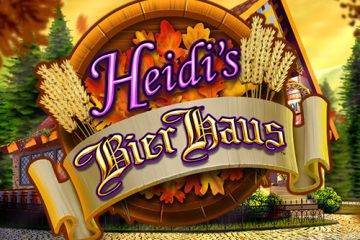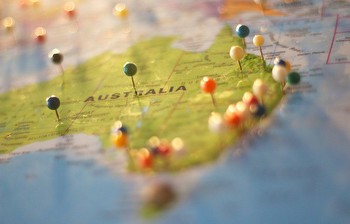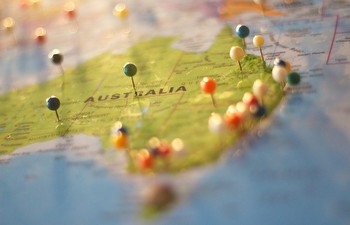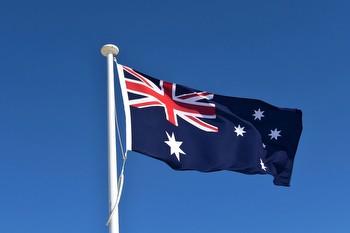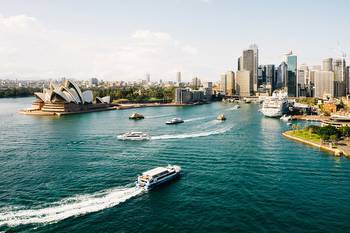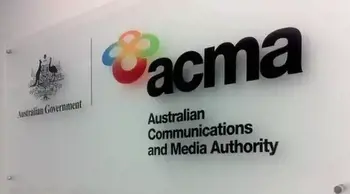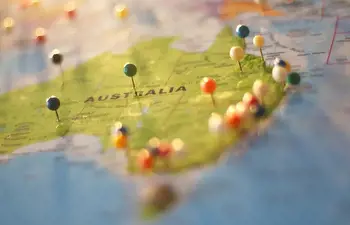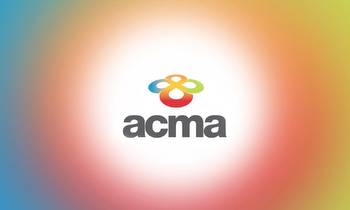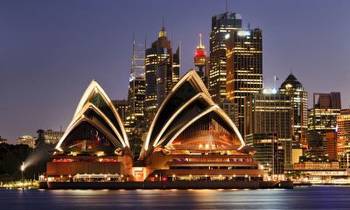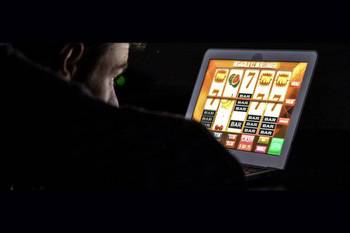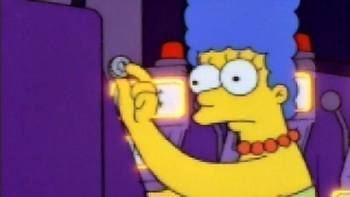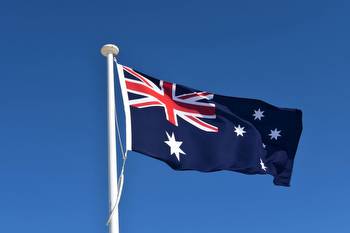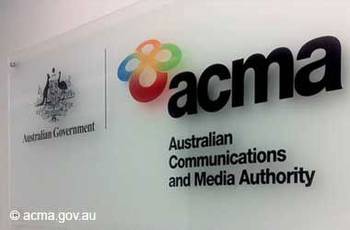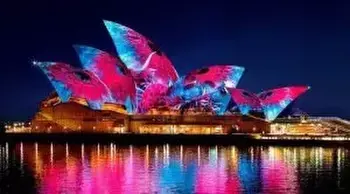Online casinos targeting Australians risk million-dollar fines for slice of $65bn pie
Online casinos that appear to be targeting Australian gamblers, without an Australian licence, have not been shut down despite the communications regulator making a crackdown on illegal operators an enforcement priority.
Ten apparently unlicensed online casinos marketed to Australians remain accessible two months after the Australian Communications and Media Authority told Guardian Australia that it was aware of the sites and they “all fall within our compliance priority activities”.
Many of the sites have an explicitly Australian theme, including Fair Go Casino, which has previously been investigated by Acma; True Blue; and PlayCroco, which has described itself as an “online casino for Australian pokie lovers”.
Six of the casinos also advertised local contact phone numbers, although four rang out and one went to an answering machine when the Guardian called this week.
All 10 casinos were marketed through website aussiecasinohex.com, which describes itself as the “No. 1 guide to gambling in Australia”.
Providing an unlicensed online gambling service to Australians is a crime that can attract a fine of up to $1.1m a day under the Interactive Gambling Act (IGA).
The sites are competing for a slice of a potentially very lucrative pie. Estimates of the revenue reaped by online gambling operators in the Asia-Pacific vary from about US$50bn ($65bn) to more than US$70bn ($90bn), and the popularity of betting on the web surged among Australians during last year’s coronavirus lockdowns, according to government research.
But investigating the casinos is made more difficult because they do not disclose their ownership and most shield the registration of their websites behind protection services offered by internet infrastructure company Cloudflare – used by nine of the 10 gambling sites examined by the Guardian.
A man who answered Two Up Casino’s Australian phone number said the casino was located in Curaçao.
He said Australian customers were welcome.
“Yes, we do have a licence in Australia,” he said. “We have a lot of players around the world.”
He said he was not allowed to supply details of the licence over the telephone.
None of the 10 casinos responded to questions emailed to contact addresses listed on their websites. A marketing firm who has been listed as a contact on press releases issued by Fair Go Casino and PlayCroco did not respond to questions sent by email and social media messaging.
The identity or identities of the providers of the poker machine-style games offered by the websites is also unclear.
All 10 appear to offer a range of colourful animated games that are marketed online under the brands Real Time Gaming and Spinlogic Gaming.
In a press release issued in June last year, PlayCroco advertised itself as offering a game called Wild Hog Luau, where rather than being the pig on a spit at a Hawaiian celebration “players join a group of hogs as they dance the night away on a tropical beach”, and Real Time Gaming was identified as the producer.
Real Time Gaming’s logo also appeared on the website of two of the 10 sites reviewed by the Guardian, BoVegas and Red Dog Casino.
The Real Time Gaming brand has been linked to Isle of Man-registered company Endon Technologies apparently by one of Endon’s directors. In an interview published in Casino Life magazine in September, the director was quoted saying that “Real Time Gaming is and always has been a brand, not a company” and that “Endon as an entity has a licence to provide RTG branded content to 3rd party B2B or B2C operators”.
Hong Kong-based RTG Slots, which markets games including Wild Hog Luau, also claims on its website to be “the Asia-focused and facing trading name of Endon Technologies based in the Isle of Man”, and the RTG Slots logo also appears on Endon’s own website.
The director did not respond to Guardian Australia’s request for comment. A second Endon director, Tina Rawlinson, firmly denied that Endon had any links or supplier relationship with the 10 casinos and told Guardian Australia that “RTG is not a trading name of Endon Technologies Limited”.
“I will ask for the wording in the RTG Slots website to be corrected,” she said. “Similarities in brand abbreviations cannot always be avoided.”
Endon “has no relationship with Spinlogic”, she said.
Provided with the names of the 10 casinos reviewed by the Guardian, she said: “I confirm that none of the casinos you have highlighted are operated by clients of Endon Technologies Limited.
“As we have established that Endon Technologies Limited is not involved in the provision of games or software to any of the 10 casinos under your spotlight, there can be no purpose to communicate further, save for to comment that it would be legally incorrect (and potentially libellous) to make any public reference that suggested Endon Technologies Limited is connected with said 10 casinos.”
SpinLogic did not respond to a request for comment sent through a form on its website. The company does not provide contact phone numbers or email addresses on its site and the Guardian was unable to determine where it is based.
There is no suggestion by Guardian Australia of any wrongdoing by Cloudflare, Real Time Gaming, Spinlogic, RTG Slots or Endon Technologies Ltd.
An Acma spokesman said the regulator was “aware of the 10 online casino services you have identified and all fall within our compliance priority activities”.
“Our focus is on the providers of these illegal casino services as well as supporting services including software providers and affiliates, to disrupt the supply and marketing of these services in the Australian market,” he said.
“We are proceeding with the enforcement and disruption options available to us. This includes requesting Australian internet service providers to block access to these websites.”
Acma has found PlayCroco and another of the 10 casinos reviewed by the Guardian, Aussie Play, “to be operating in breach of the Interactive Gambling Act” and intends to write to Australian ISPs requesting them to block the sites, the spokesman said.
He said Acma had already asked ISPs to block six more of the websites reviewed by the Guardian: Two Up Casino, Cherry Gold Casino, True Blue Casino, Bovegas, Xpokies and Red Dog Casino.
Acma has been investigating Fair Go Casino for well over a year. In November 2019, it told Guardian Australia it had identified Deckmedia, a company registered in Curaçao, as involved in the operation of the casino.
The Guardian was unable to locate Deckmedia.
“We are continuing to investigate the provider/s of the Fair Go Casino service,” Acma’s spokesman said.
Asked if Acma was frustrated that it had been unable to shut down Fair Go Casino despite more than a year of investigation, the spokesman said that offshore gambling was “a challenging and complex environment to regulate”.
“Despite those challenges, the ACMA is proceeding with the enforcement and disruption options available to us. This now includes website blocking, which the ACMA commenced in November 2019 [and] which has been effective in disrupting the service.”
He said Acma was aware that some unlicensed casinos used Australian phone numbers and was able to use its powers to get information about the numbers from Telstra.
Acma was also “aware that some online gambling services that contravene the IGA use Cloudflare technology”, he said.
“We engage with service providers and other stakeholders in the online gambling sector to raise awareness of Australia’s online gambling laws to minimise the supply of illegal gambling services,” he said.
A Cloudflare spokeswoman declined to comment.
Acma’s spokesman said its enforcement program had been successful “with over 86% of services that were being provided illegally withdrawing from the Australian market following contact by the Acma during the investigation or after receiving a formal warning”.
Website blocking, which has been under way since November 2019, has been “effective in disrupting gambling services being provided into the Australian market”, he said.
“Some of the illegal gambling services whose sites have been blocked have either withdrawn of their own accord or have not taken any action to circumvent the blocks. Others have sought to circumvent the blocks by launching mirror sites. We monitor and block mirror sites, sometimes repetitively.
“But even where this cycle is happening, we have found that the blocking is effective in reducing the amount of Australian traffic to the site.”







